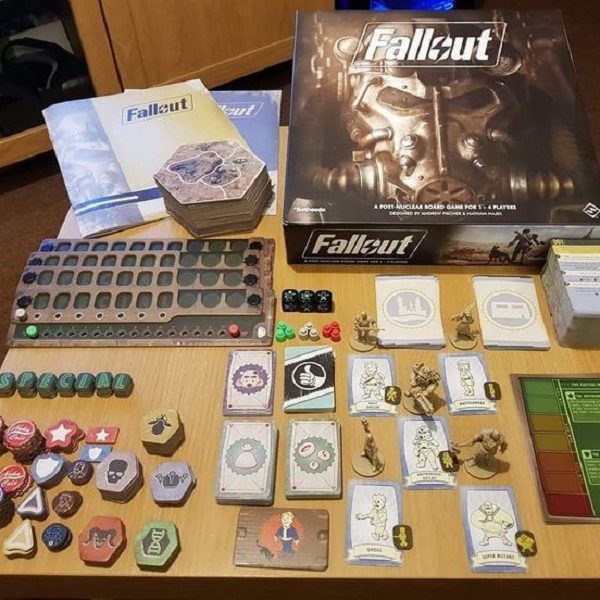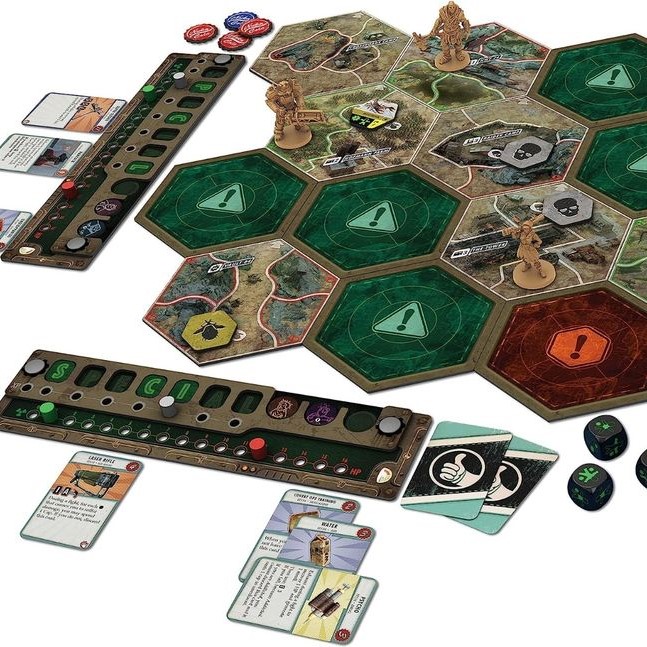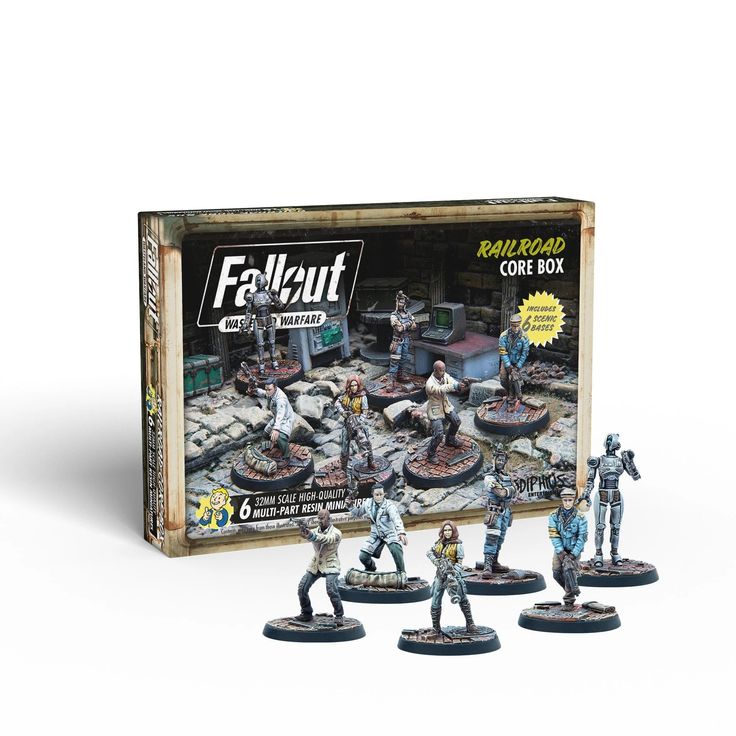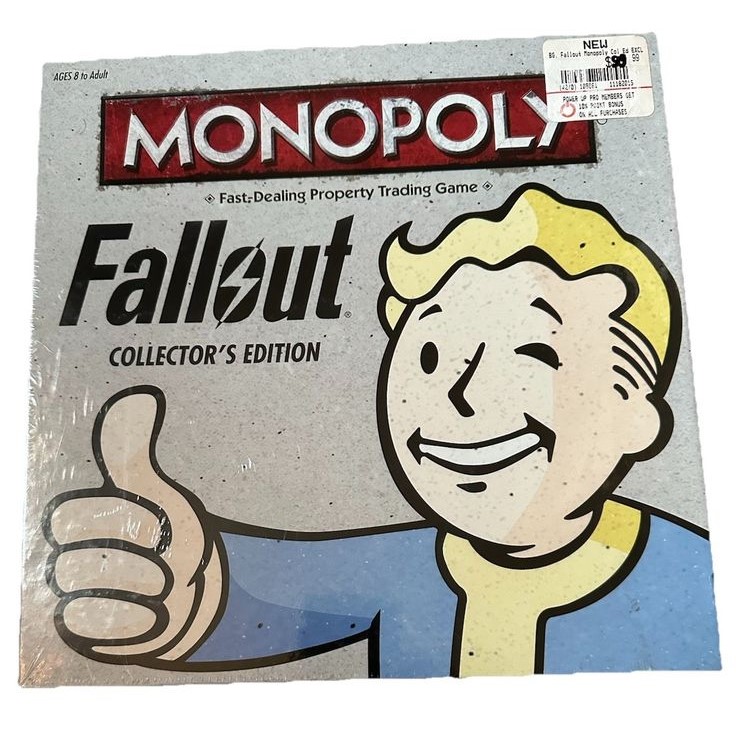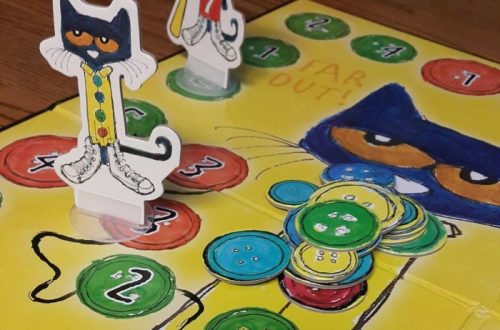Introduction
The Fallout Board Game delivers a riveting post-apocalyptic adventure experience. Designed for fans of the Fallout video game series and newcomers alike, this game merges storytelling, strategy, and exploration, allowing players to immerse themselves in a nuclear-ravaged world. From its origin to gameplay mechanics, it presents an intriguing mix of challenges and excitement.
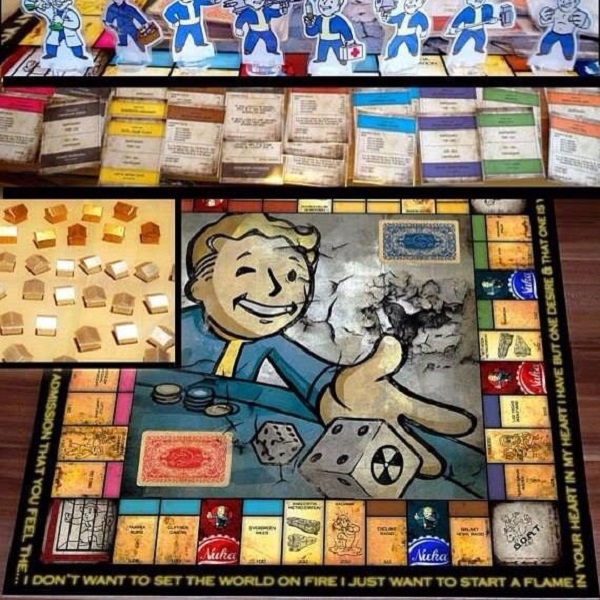
Origins and Inspirations of the Game
The Fallout Board Game draws inspiration from the iconic Fallout video game series by Bethesda. Known for its open-world design and engaging narratives, the series has a cult-following among gamers. The board game takes this immersive world and replicates its core themes of survival, factions, and moral decision-making. Developers have ensured that the atmosphere of the Wasteland remains true to the original games, retaining elements like retro-futuristic design and memorable characters.
Overview of the Gameplay
The gameplay in Fallout Board Game focuses on exploration, choice, and survival. Players navigate hexagonal tiles to uncover new areas on the map. Actions include battling enemies, discussing quests, and making critical decisions that impact outcomes. With a focus on storytelling, quests evolve as players interact with the game’s narrative cards. The combination of competitive and cooperative gameplay ensures variability in each play session, keeping players engaged as they strive for victory or survival in a treacherous post-nuclear world.
Game Components and Unboxing
One of the most exciting moments of owning the Fallout Board Game is unboxing it. The game offers a treasure trove of components that bring the Wasteland to life. From detailed game pieces to vibrant cards, every item adds to the immersive experience of this post-apocalyptic adventure.
What’s Inside the Box?
The Fallout Board Game’s box is packed with essential and thematic components, including:
- A modular board made up of hexagonal tiles for a customizable map.
- Several character miniatures, each designed to represent iconic Fallout-inspired figures.
- Quest and narrative cards that guide the evolving storyline during gameplay.
- Enemy tokens featuring classic Fallout creatures like Super Mutants and Radscorpions.
- Caps that act as the in-game currency, contributing to the lore of the Fallout universe.
- Player boards to track attributes, equipment, and progress.
- Dice for determining combat outcomes and special events.
- A detailed rulebook to help players learn the mechanics and rules quickly.
Each component serves a specific purpose, enhancing the overall game mechanic and storytelling.
Quality and Design of Game Pieces
The quality and design of the Fallout Board Game components are impressive. Developers paid close attention to crafting items that genuinely reflect the Fallout universe:
- Miniatures: The character miniatures are detailed and durable, capturing the essence of Fallout’s iconic style.
- Hexagonal Tiles: These tiles feature vivid artwork of Wasteland terrains, making the world map immersive and customizable.
- Cards and Tokens: The cards are durable, with clear text and engaging graphics. Tokens are sturdy for repeated use.
- Rulebook: It is concise, well-organized, and easy to understand, making the game accessible to beginners.
The retro-futuristic artistry shines in every piece. Whether you are placing tiles or rolling dice, the attention to design fosters an enjoyable gaming experience.
The components not only enhance gameplay but also act as a love letter to longtime fans of the Fallout universe.
How to Play Fallout Board Game
The Fallout Board Game offers an engaging journey into survival and strategy. To fully enjoy the game, learning its setup and rules is essential. This section provides step-by-step guidance on getting started, explains core objectives, and offers tips for beginners to ensure a smooth gaming experience.
Setting Up the Game
Setting up the Fallout Board Game is straightforward. Follow these easy steps to prepare:
- Arrange the Modular Map: Assemble hexagonal tiles as per the scenario described in the rulebook.
- Distribute Player Boards: Give each player a board to track stats, equipment, and progress.
- Choose Miniatures: Players pick a miniature representing their character in the Wasteland.
- Sort Cards: Separate quests, events, and narrative cards into labeled piles for easy access.
- Place Tokens and Caps: Organize enemy tokens and caps within reach for gameplay.
- Prepare Dice: Have combat and event dice ready for determining outcomes.
- Read Scenario Description: Review the scenario’s storyline to set the game’s narrative tone.
Proper setup ensures smooth gameplay and immersion from the beginning.
Rules and Objectives Explained
Understanding the rules and objectives is crucial for every Fallout Board Game session. Key aspects include:
- Explore the Map: Navigate hex tiles to uncover new areas, resources, and challenges.
- Complete Quests: Fulfill narrative-driven tasks that evolve as the game progresses.
- Combat Enemies: Battle creatures using dice rolls to gain experience and rewards.
- Survive and Progress: Manage attributes like health, caps, and equipment wisely.
- Reach Ending Goals: Depending on the scenario, strive for victory by achieving specific objectives.
The combination of exploration and strategic decision-making makes every session unique and exciting.
Tips for First-Time Players
New players might find the Fallout Board Game challenging at first. These tips make your first game easier:
- Start with One Scenario: Choose a straightforward scenario to learn the rules.
- Read the Rulebook Thoroughly: Familiarize yourself with mechanics before playing.
- Plan Your Moves Wisely: Think ahead while exploring to avoid dangerous situations.
- Monitor Resources Closely: Keep track of caps, health, and equipment for survival.
- Collaborate with Other Players: Work together to tackle tough Wasteland challenges.
Following these tips ensures that first-time players enjoy and understand the adventure. Each successful round deepens your connection to the Fallout universe.
Exploring the Post-Apocalyptic World
The Fallout Board Game invites players into a richly detailed, post-apocalyptic world. Its design mirrors the immersive landscapes and themes of the Fallout video game series. This section delves into the game’s map mechanics, key factions and characters, and the narrative-driven quests that define the experience.
Map and Scenarios in the Game
The game’s modular map is made of hexagonal tiles. Each tile represents a distinct location in the Wasteland. The map changes for every scenario, ensuring high replayability. Common features include settlements, ruins, and hazardous zones. Players explore these tiles to uncover resources, enemies, and quests.
Scenarios dictate the map layout and the narrative goals. Each scenario offers unique challenges and story elements. From battling raiders to forging alliances, players face decisions that shape the Wasteland’s future. This variety keeps the gameplay fresh and engaging.
Factions and Characters Overview
The Fallout Board Game includes several iconic factions. These factions mirror those in the Fallout video game series. Players encounter groups like the Brotherhood of Steel, the Enclave, and Raiders. Each faction brings distinct motivations, offering players moral choices during interactions.
Characters in the game are equally diverse. Each player chooses a character miniature with unique skills and backstories. These characters may be scavengers, scientists, or former soldiers. Players use their chosen characters to interact with factions, navigate the map, and survive Wasteland dangers.
Quests and Narrative Elements
Quests are central to the Fallout Board Game experience. Players draw narrative cards that present tasks and storylines. These quests often involve faction disputes, resource hunting, or dangerous combats. Players’ decisions during quests impact the game’s evolving story and outcomes.
Many quests offer moral choices, reflecting the Fallout series’ theme of consequence. Players must weigh short-term gains versus long-term alliances. The branching questlines ensure every game feels new and personalized.
Incorporating exploration, faction dynamics, and story-driven objectives, the Fallout Board Game immerses players in an authentic post-apocalyptic adventure.
Strategies to Master
Mastering the Fallout Board Game requires thoughtful tactics, resource management, and smart collaboration. Success depends on balancing exploration, combat, and strategic decisions. Here’s a guide to help you win and enjoy the game.
Top Strategy Tips for Winning
To improve your chances of victory, follow these effective strategies:
- Understand the Scenario Goal: Always review the scenario’s objectives before starting. Knowing the win conditions helps you plan.
- Explore Efficiently: Don’t waste turns wandering aimlessly. Move purposefully to uncover key locations and resources.
- Focus on Equipment: Collect and upgrade equipment early to enhance your survival and combat ability.
- Prioritize Quests: Complete quests to gain rewards that can tilt the game in your favor.
- Adapt to Challenges: Be flexible when the map or game dynamics change. Adjust your strategies accordingly.
- Track Factions: Manage interactions with factions. Align with one group to gain advantages in the storyline.
Combining these tactics ensures a focused, well-executed gameplay strategy.
Managing Resources and Decision-Making
Resource management is key to long-term survival in the Fallout Board Game. Here’s how to excel in this area:
- Caps and Items: Use caps for essential items and save them when possible. Avoid spending unnecessarily.
- Health and Attributes: Monitor your health and character attributes during every turn. Stay prepared for sudden battles.
- Combat Readiness: Always have weapons and armor ready. Stock up on supplies for critical encounters.
- Weigh Risks and Rewards: Think carefully before taking risks. Evaluate if the potential reward is worth it.
Smart decision-making and resource control significantly improve your gameplay effectiveness.
Collaborating vs Competing in Gameplay
The Fallout Board Game offers both competitive and cooperative elements. Choosing how to interact with other players depends on the scenario and dynamics:
- When to Collaborate: Work together in challenging scenarios where survival is tougher through solo effort. Sharing resources or joint combat can benefit everyone.
- When to Compete: Compete when the scenario encourages individual goals. Use alliances momentarily before pursuing personal objectives.
- Strategic Alliances: Form temporary alliances with opponents. This keeps you safe while targeting mutual threats.
- Beware of Betrayals: If competing, remain cautious of deals that disadvantage you later.
Balancing collaboration and competition creates a dynamic and thrilling gaming experience. Use these strategies to dominate the Wasteland.
Expansions and Variants
The Fallout Board Game experience expands beyond the base game. Players can enjoy new adventures through official expansions and community-created variants. These additions enhance replayability, introduce fresh content, and allow players to explore different aspects of the Wasteland.
Additional Content and Expansions
Official expansions for the Fallout Board Game bring new elements to the table. They add scenarios, characters, and mechanics, enriching gameplay. Examples of expansions include:
- New Scenarios: Unique storylines that challenge players in different ways.
- Additional Characters: Fresh miniatures with new skills and backstories.
- Extra Factions and Enemies: Expanded interactions with groups like Raiders or mutants.
- New Equipment and Quests: Enhanced item variety and more narrative cards.
These expansions keep the game exciting for players who want more depth and variety.
How Expansions Enhance Gameplay
Expansions significantly improve the Fallout Board Game experience by:
- Increasing Replayability: New scenarios and quests make each session unique.
- Engaging New Players: Additional content attracts fans who enjoy diverse mechanics and stories.
- Deepening Strategy: More factions, characters, and equipment require advanced planning and decision-making.
- Strengthening Immersion: Expansions add detailed, lore-rich elements to the Wasteland.
With expansions, players enjoy the game’s full potential while exploring uncharted narratives.
Fan-Created Content and Variants
The Fallout community actively contributes to the board game. Fan-created content and variants add creative twists to the game, including:
- Custom Scenarios: Players design personalized storylines for their sessions.
- Modified Rules: Fans tweak rules for faster or more challenging gameplay.
- Unofficial Add-Ons: Creators introduce new tiles, quests, or miniatures.
Community-created variants highlight the game’s flexibility while fostering creativity and collaboration. As a result, the Fallout Board Game evolves with its passionate fan base. These options ensure lasting enjoyment for everyone involved.
Fallout Board Game vs Similar Titles
The Fallout Board Game offers a unique experience, yet it stands among other post-apocalyptic games. Comparing it with other titles highlights its distinct strengths and features.
Comparing with Other Post-Apocalyptic Board Games
The post-apocalyptic genre is popular among board games. Some notable titles include Dead of Winter, Zombicide, and Wasteland Express Delivery Service. While these games share common themes, each takes its own approach:
- Dead of Winter: Focuses on group survival dynamics during a zombie apocalypse. Players manage resources while handling hidden objectives.
- Zombicide: Offers action-packed, zombie-killing mayhem, focusing heavily on combat and cooperative gameplay.
- Wasteland Express Delivery Service: Combines post-apocalypse survival with a logistics and delivery theme.
The Fallout Board Game differentiates itself through its storytelling and deep connection to the Fallout video game series. Its narrative-driven quests and faction interactions provide unparalleled immersion for Fallout fans.
Unique Features and What Sets It Apart
The Fallout Board Game stands out due to:
- Narrative Depth:
- Players experience branching quests that shape the story.
- Moral choices lead to different consequences, mimicking the Fallout video game’s decision mechanics.
- Factions and Lore:
- Iconic groups like the Brotherhood of Steel and Super Mutants bring the Fallout world to life.
- Players can ally or oppose these factions based on personal strategies.
- Modular Map System:
- Modular hex tiles create varied map layouts for each game.
- Scenarios ensure every playthrough feels fresh and challenging.
- Flexibility in Gameplay:
- Both competitive and cooperative modes allow for diverse play styles.
- Players can adapt their approach based on the scenario or group preference.
These features make the Fallout Board Game immersive, replayable, and distinct from similar titles in the genre. It’s a love letter to Fallout fans and a refined experience for strategy enthusiasts.
Final Thoughts
After diving deep into the Fallout Board Game, it’s clear that this game offers a unique blend of storytelling, strategy, and exploration. Its post-apocalyptic themes and connection to the video game series create a captivating adventure. However, like all games, it has its strengths and weaknesses.
Pros and Cons of Playing
Pros:
- Immersive Storytelling: The branching quests and narrative cards bring the Fallout universe to life.
- Customizable Map: The modular hex tiles ensure high replayability and varied gameplay.
- Detailed Components: Miniatures, cards, and tokens reflect the quality and design of the Fallout franchise.
- Flexible Gameplay Modes: You can play competitively or cooperatively, depending on your group dynamics.
- Connection to Fallout Lore: Iconic factions, characters, and events bring nostalgia for Fallout fans.
Cons:
- Steep Learning Curve: The rules may overwhelm first-time players without prior strategy game experience.
- Long Playtime: Sessions may extend beyond expected hours, requiring focused commitment.
- Limited Player Count: The game is ideal for smaller groups, which can restrict wider gatherings.
- High Setup Time: Preparing the board and components can be time-consuming.
- Price Point: The cost might deter casual gamers looking for simpler board games.
Is It Worth Buying?
The Fallout Board Game is absolutely worth buying for fans of the video game series. Its attention to lore and immersive mechanics will delight those who enjoy strategic and narrative-driven games. However, it may not suit players who prefer quick, straightforward board game experiences.
For collectors and enthusiasts of post-apocalyptic themes, this game is a valuable addition. Its replayability and expansions offer long-term enjoyment. If you appreciate games that combine rich storytelling with challenging gameplay, the Fallout Board Game should find a place on your shelf.
